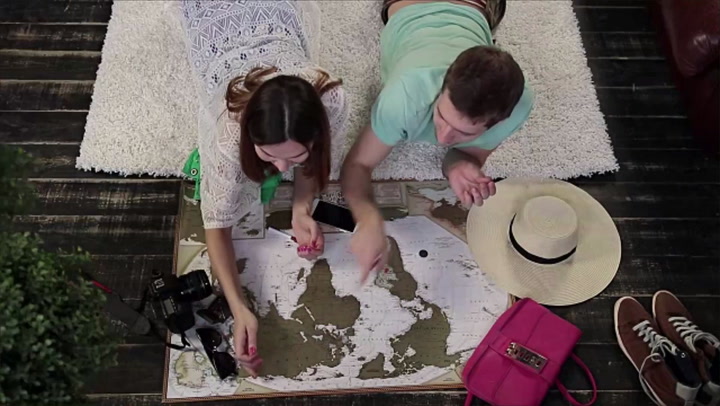Summary
Stop stressing, and start making the most out of your time off.
Fact checked by Sarah Cahalan
You’d think planning and going on a vacation would be a dream. However, for many, taking time off from work, family, and daily responsibilities can feel overwhelmingly stressful.
In 2015, Healthline surveyed more than 2,000 working adults, revealing that 62 percent reported “very” or “somewhat” elevated levels of stress during their winter vacations. Nevertheless, stress should not deter us from enjoying our well-deserved time off. Here are five strategies to combat stress while planning, taking, and returning from a vacation, allowing you to savor your hard-earned getaway.
Don’t be so hard on yourself, to begin with.
“If you’re someone who works, you’re checking your emails, getting text messages, and even scrolling through social media, digesting a lot of information,” explains Dr. Megan Jones Bell, a clinical psychologist and former chief science officer at the meditation and mindfulness app Headspace. “It’s a lot to expect that you can just flip a switch.”
To tackle the stress of travel planning, it’s important to identify the sources of your anxiety. Is the thought of disconnecting from work causing you concern? Consider choosing a destination with reliable Wi-Fi to stay connected. Alternatively, if you’re worried about checking in with your job, earmark a vacation that offers an internet-free experience. Regardless of the root of your stress, there’s always a way to alleviate it.
Start the relaxation process before you leave.
According to Bell, initiating the relaxation process before reaching the airport is crucial. This can be achieved by establishing rituals and routines that serve as a buffer against stress during your travels.
For Bell, this involves engaging in a Headspace meditation routine—starting a 10-minute practice several days in advance. For those new to meditation, consider allocating a few quiet minutes each day to gradually build this habit.
Additionally, you might document your vacation goals in a journal or prepare a personalized itinerary to ensure you experience everything on your wish list. Personalizing your routine can enhance its effectiveness.
Make sure all your vacation goals are achievable.
While planning activities for your vacation can be exciting, overcrowding your schedule often leads to disappointment. Research indicates that over-scheduling can detract from your enjoyment. It’s not the activities themselves, but assigning specific times to them that can become pressure-filled.
To alleviate itinerary-related stress, start each morning of your trip by setting a positive intention. Taking just a few moments to reflect on what you wish to accomplish that day can significantly reduce anxiety.
Prior to your trip, consider crafting a flexible itinerary. Develop two lists: one for your “must-see” attractions and another for “optional” sights. This way, you can prioritize your time without the constraints of a rigid schedule.
Use vacation time to kickstart healthy new routines.
Rather than viewing vacation as an escape from your real life, consider it an opportunity to introduce positive habits into your everyday routine.
“Vacation is a perfect time to kick-start healthy practices that may seem difficult to implement during your normal day-to-day life,” Bell advises. For instance, you might choose a vacation that aligns with your health goals, such as attending a yoga retreat, embarking on a culinary journey, or participating in an all-inclusive wellness getaway designed to refresh your mind, body, and soul. Furthermore, consider using this time to start a meditation practice, which offers numerous health benefits.
Keep up your new habits for at least 10 days after you return.
Bell notes that forming a new habit takes approximately 10 days. Therefore, if you begin a new routine during your vacation, remember to carry it into your everyday life upon returning.
“Research at Headspace indicates that using the app for just 10 days can significantly reduce stress,” states Bell. “So, if you establish a daily meditation practice during your trip, you’ll likely find it easier to manage stress once you’re back.”
Nonetheless, returning to normal life can sometimes bring about feelings of ennui. Therefore, to counteract the post-vacation blues, it’s advisable to allow for an adjustment period upon arrival, decorate your home with mementos from your travels, and attempt to maintain a positive vacation mindset for as long as possible. By implementing these strategies, you can expertly minimize vacation-related stress.




